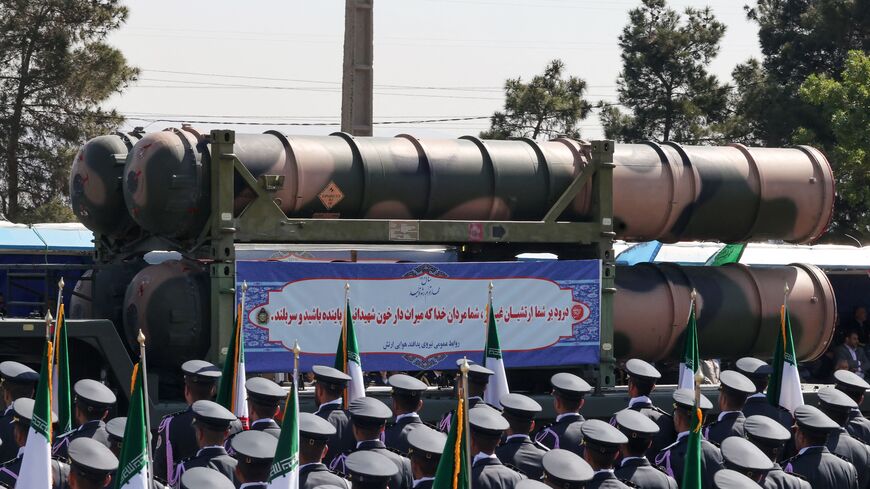Iran's top officer said on Tuesday that his country has gained sufficient military prowess to make its foes forego the option of a military strike against the Islamic Republic.
"It's been years since they have stopped talking about the military option," said the chief of staff of Iran's armed forces, Maj. Gen. Mohammad Bagheri, in an interview with Tasnim news agency.
Enumerating "criminal" foes, including the United States and Israel, Bagheri said they have also come to the conclusion that "a ground battle against the Islamic Republic will be doomed in failure."
Despite engaging in on-and-off diplomacy with Tehran over the past decade, the United States has warned that "everything remains on the table" in its treatment of threats posed by the Islamic Republic's nuclear and missile programs. Iran's No. 1 foe, Israel, has been more open in such rhetoric, threatening to strike specific Iranian nuclear sites.
"We have achieved sustainable and efficient deterrence," the Iranian commander claimed, repeating a notion based on which Iran has attempted to justify its military activities. Most notably, when it comes to ballistic missiles and combat drones, Tehran says the projectiles and aircraft are developed for "deterrent" purposes. The argument, however, has failed to convince Western adversaries, who fear such advancements are a growing menace to stability in an already restive Middle East.
Israel and the United States have also been irked watching Tehran forge military alliances with its regional partners. As recently as March, Iran held a joint exercise with Russia and China in the Gulf of Oman, where a leading Iranian naval destroyer appeared to be rubbing shoulders with its Chinese and Russian peers, the Nanning and Admiral Gorshkov.
The hard-line commander made the comments after overseeing artillery and reconnaissance equipment at a military base run by the Islamic Revolutionary Guard Corps (IRGC) in Iran's northwest. "We are closely watching the enemies," he said, boasting about Iranian forces being "at the pinnacle of their preparedness at borders as well as in extra-territorial operations."
Last month in the same region, the IRGC engaged in a weeklong operation targeting exiled Kurdish militants based in the rugged mountains of neighboring Iraqi Kurdistan. Tehran alleges that those groups are linked to Israel and are adding fuel to the unrest that engulfed Iran after the death in police custody of a 22-year-old Kurdish woman, Mahsa Amini, in September 2022.
Despite outright condemnation from both Baghdad and Erbil, Iran has on multiple occasions bombed the Kurdish opposition's bases well inside Iraqi soil with deadly missile and drone strikes since then, and has not taken off the table the threat of a ground incursion into Iraqi Kurdistan to oust those groups.
Only last week, Bagheri issued an ultimatum to Iraqi authorities, asking them to "disarm" the Iranian Kurdish opposition by Aug. 20.
Otherwise, he warned, "We will take the matter into our own hands with even tougher action."








